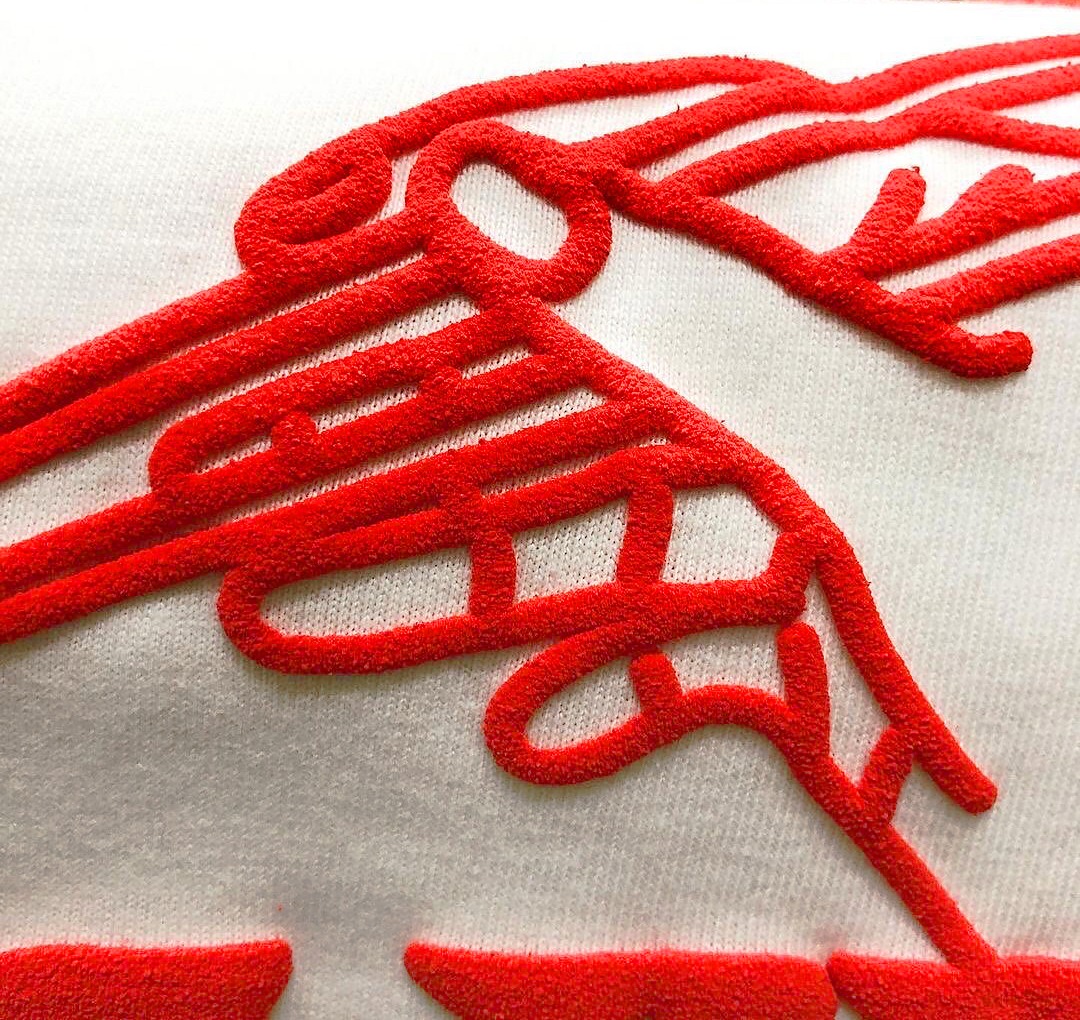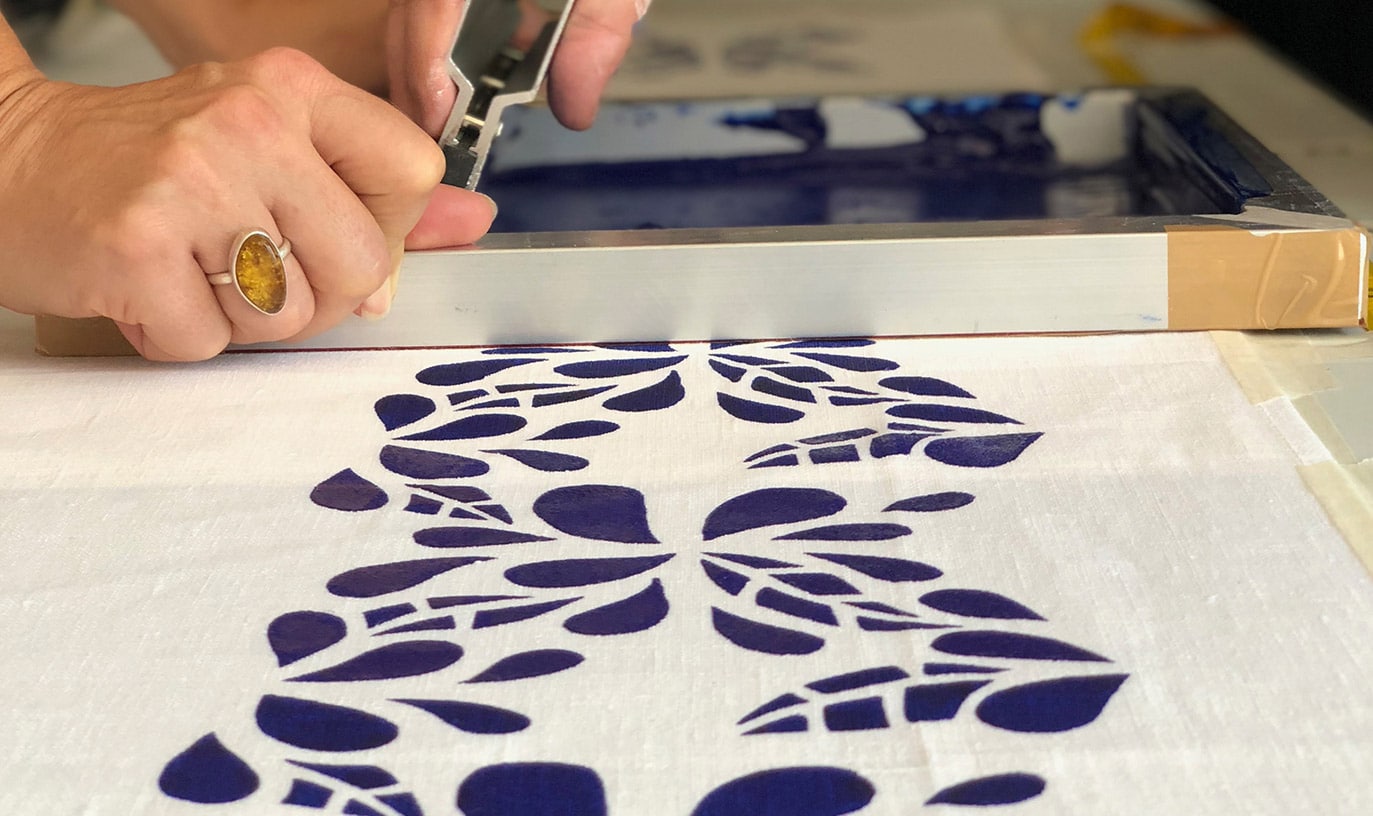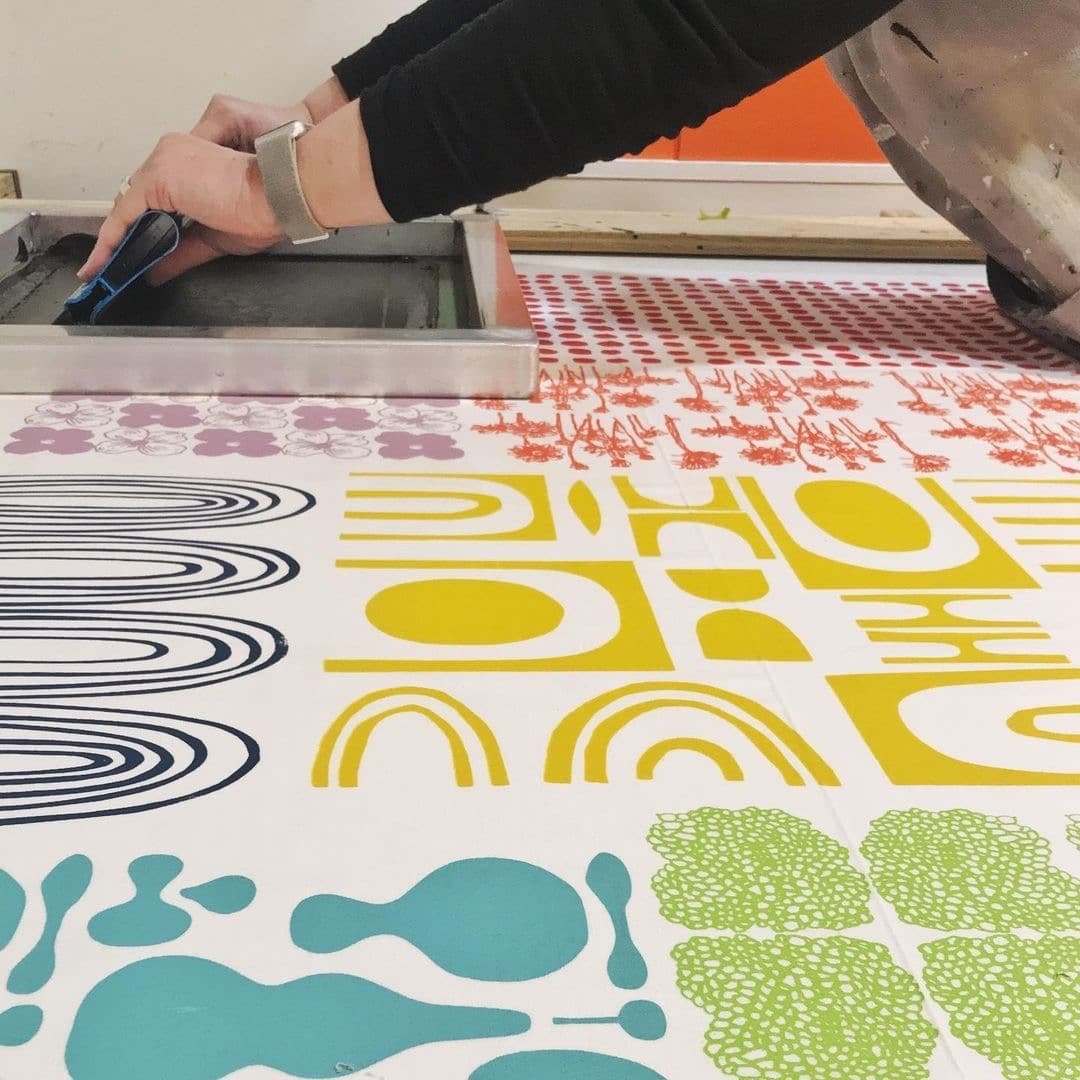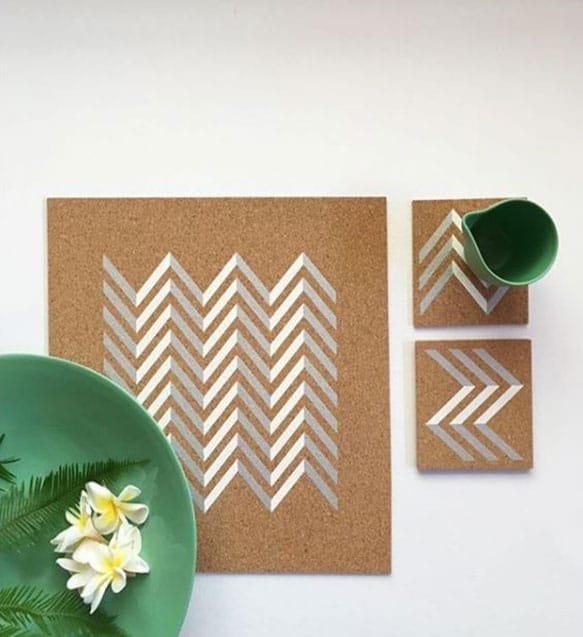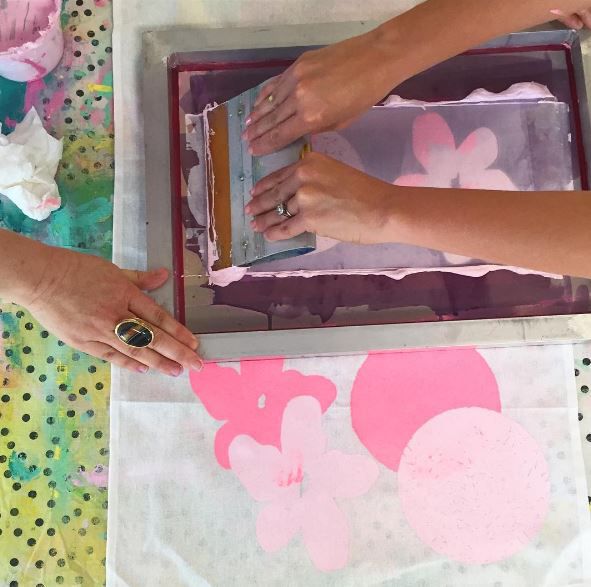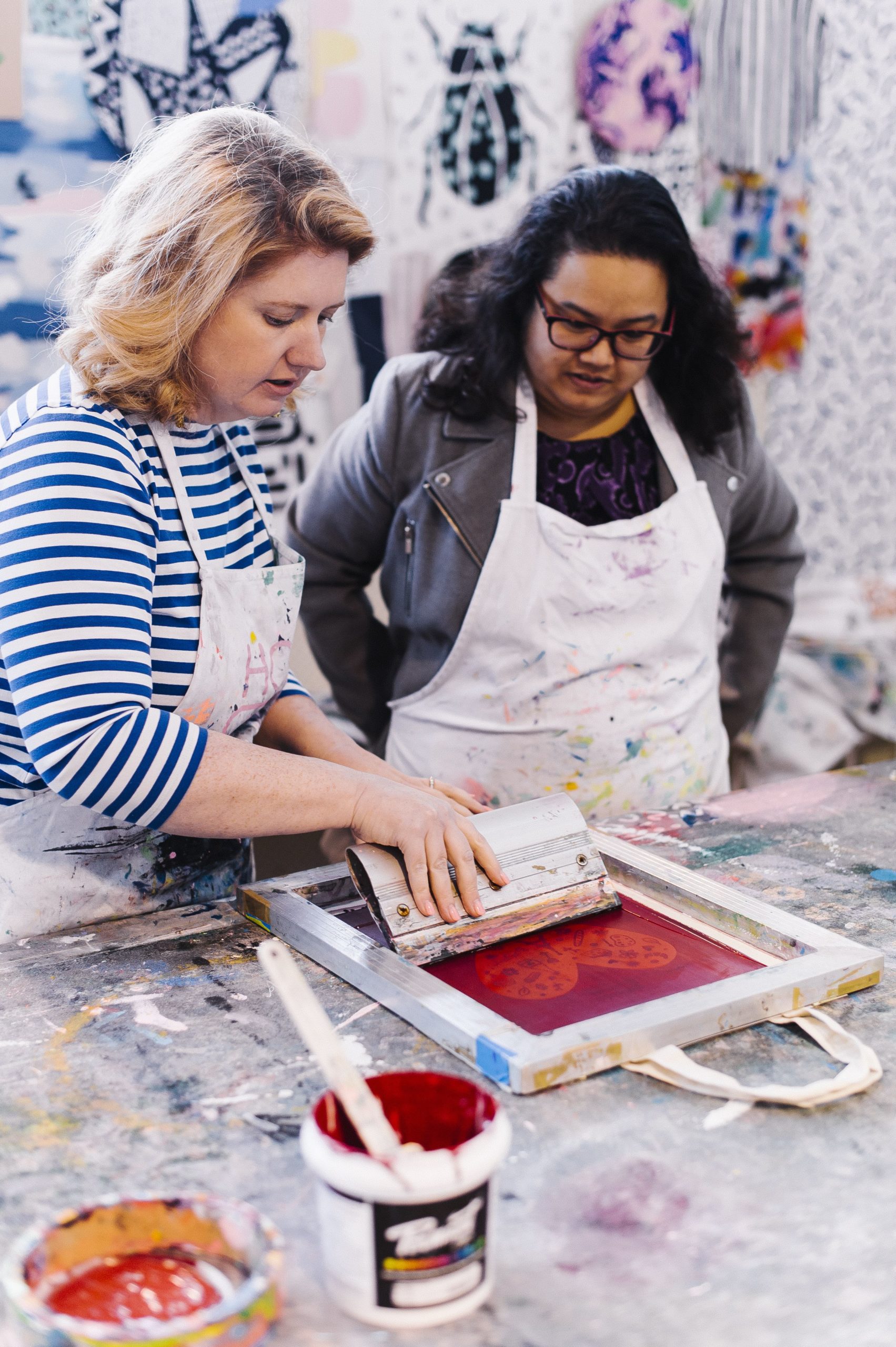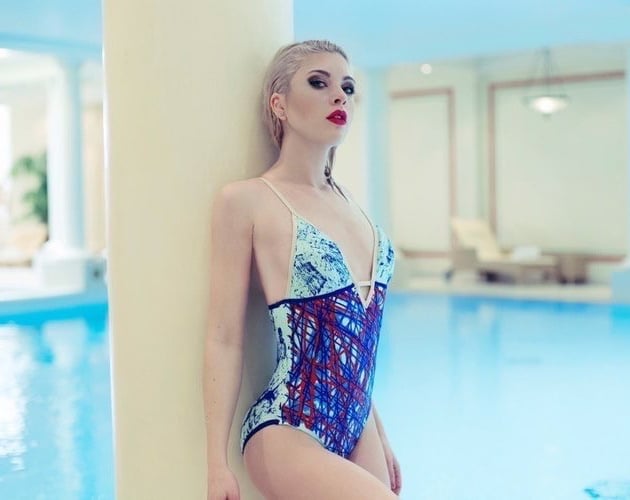Whether you’re working on a large-scale project or a small, intricate design, PERMASET Inks offer the versatility and reliability that you need to achieve stunning results. Manufactured sustainably with 100% solar energy.
Why water-based inks?
In today’s world, where sustainability is a top priority, screen printing inks for hobbyists and artists play a crucial role in promoting more environmentally friendly printing practices.
PERMASET is an excellent choice for screen ink suppliers for art studios, offering high-quality, eco-friendly, and long-lasting inks. By choosing PERMASET water-based inks, artists can significantly reduce their environmental impact while still creating beautiful, long-lasting and vibrant prints.
In addition to being made from natural and renewable resources, PERMASET AQUA Inks for fabric printing and PERMAPRINT Premium Inks for printing on paper and other substrates, are free from harmful chemicals like phthalates and PVC, making them much safer for both the environment and the people using them. They’re also non-toxic, non-flammable, and biodegradable, making them an excellent choice for eco-conscious artists.
Low cure temperature capability
Looking for printing ink manufacturers for art studios with products that are not only eco-friendly, but also low-temperature curing? PERMASET Inks offer just that, making them a top choice for printing on heat-sensitive fabrics and ensuring the highest quality results.
Improved printability
PERMASET Inks are designed with improved printability in mind, providing excellent coverage, smooth texture, and effortless application, making them the ideal choice for professional printers.
PERMASET SUPERCOVER in particular requires far less effort to print than a comparable plastisol Opaque White for example. This translates to less wear and tear on the squeegee, on the mesh, on the stencil and if you’re printing manually, then on the joints of the printer. So really, it’s less wear all round and, in the best possible way, an example of treading lightly on the planet.
Made sustainably
We strive to tread lightly on the earth. 100% of energy used to produce PERMASET eco-friendly inks comes from renewable sources. We recycle our paper and board, water and metal wastes.
Vegan-friendly
PERMASET Inks are proudly vegan, meaning all of our ingredients are cruelty-free and not sourced from or tested on animals.
Soil Association approved
PERMATONE Inks and PERMASET Process Colours are Soil Association Approved.
Resources for art hobbyists
Whether you’re working on a large-scale project or a small, intricate design, PERMASET Inks offer the versatility and reliability that you need to achieve stunning results. Manufactured sustainably with 100% solar energy.

Tutorials
Looking for screen printing tips and tricks? Our website offers a wealth of helpful resources, including videos, e-books and blogs that are available here.
In addition to our general screen printing content, we also offer e-books that focus specifically on Reductions of PERMASET AQUA and PERMATONE Inks. These e-books cover everything from reductions to colour mixing, and they’re a great resource for anyone looking to get the most out of these high-quality inks.
Free download: Moving to water-based inks
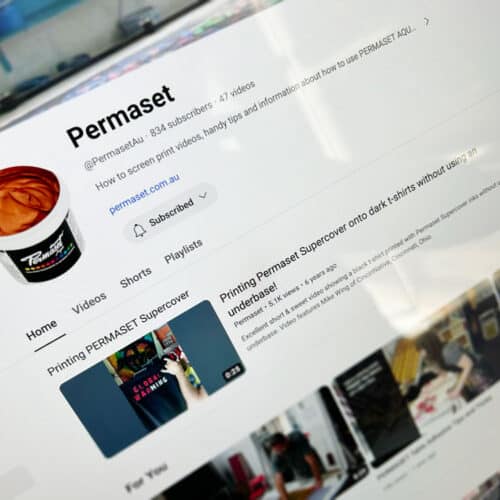
YouTube
Whether you’re new to screen printing or have been doing it for years, our content as screen printing ink suppliers for art studios is designed to help you take your art to the next level. From mastering the flood stroke and print stroke to perfecting the design-to-print process, our YouTube channel has got you covered.
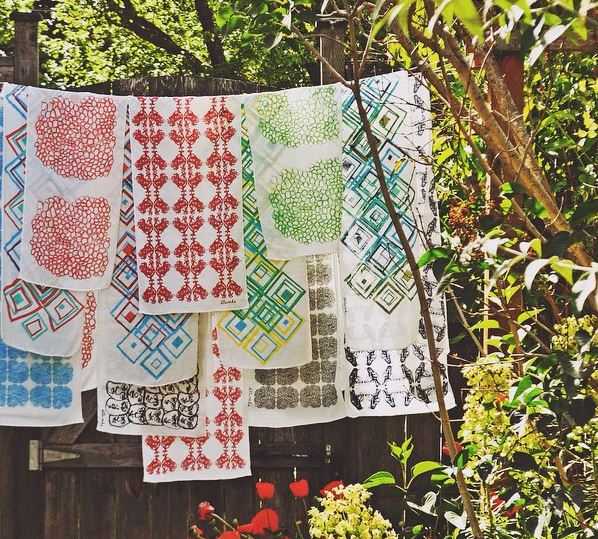
What artists have to say about PERMASET
“I hand screen print textiles and fine art prints. I’m an extremely tactile person which means using PERMASET ink is particularly enjoyable. It’s almost like using a really fancy face cream – the kind that you savour as you use it, knowing that it’s special. The opacity and colour is rich and beautiful and the durability and soft hand on fabric is stellar.“
Kristen Loffer Theiss, Designer
KLT:works, Washington USA

Our range of sustainable inks
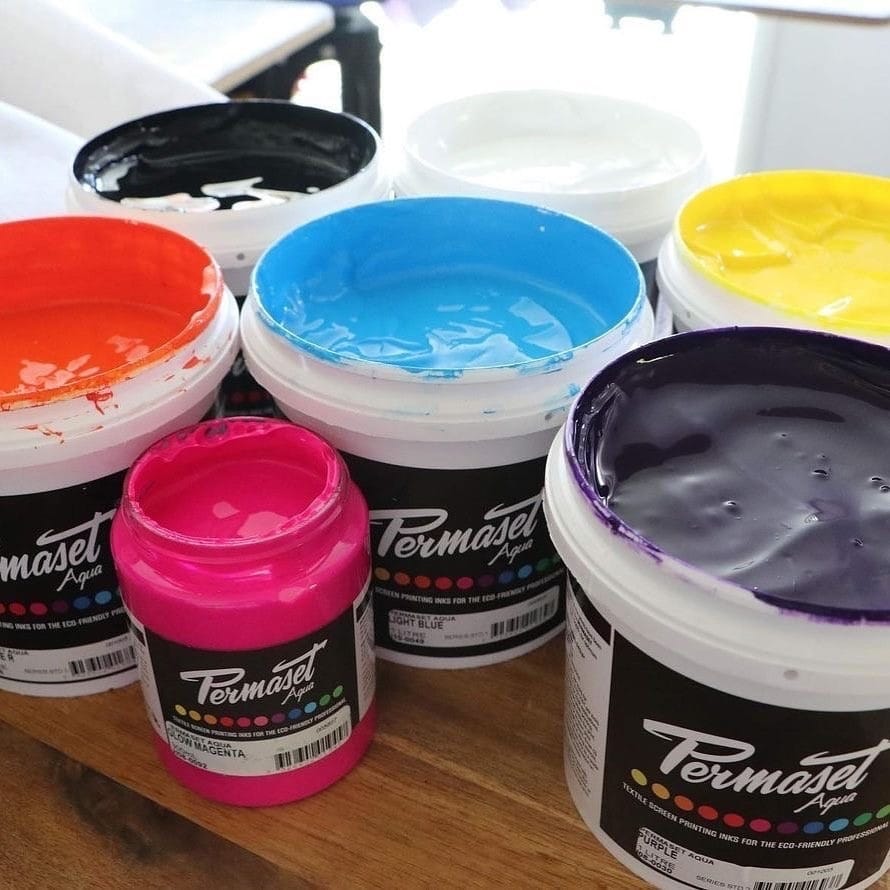
PERMASET AQUA
Setting the industry standard of water-based inks for light-coloured fabrics
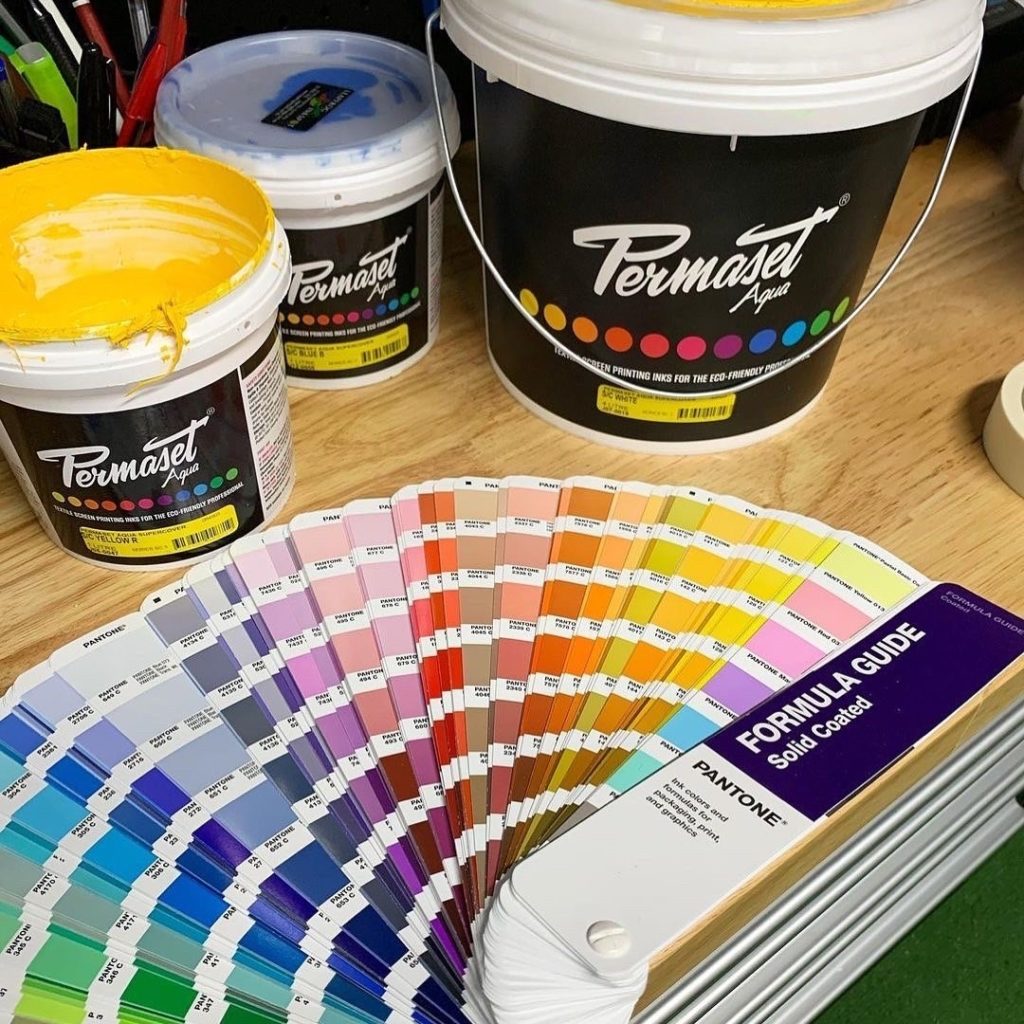
PERMASET SUPERCOVER
Unsurpassed colour and opacity even on the darkest fabrics
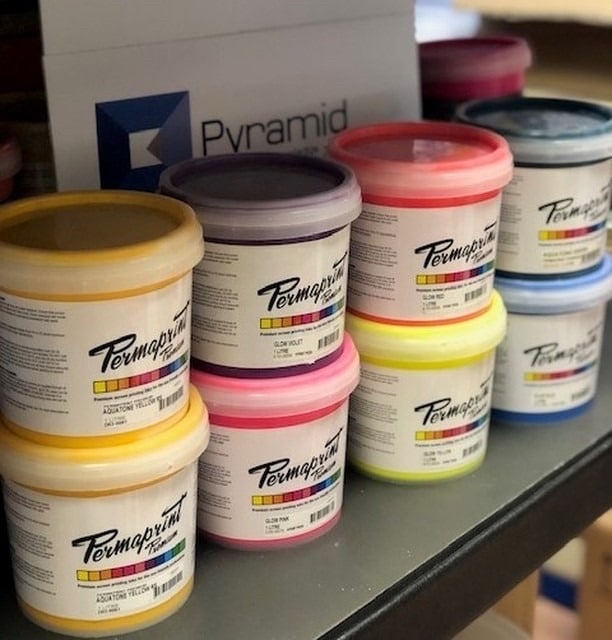
PERMAPRINT PREMIUM
Inks for printing on paper, board, plastic, glass, wood, metal & other substrates
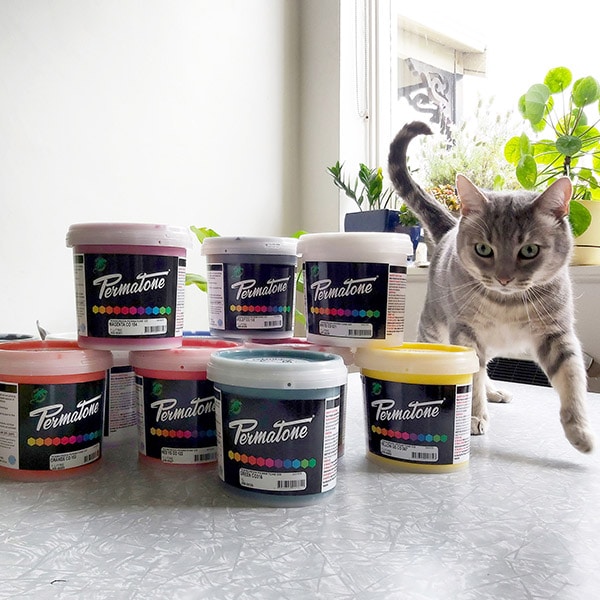
PERMATONE
Colour matching set for printing on fabrics, can be mixed to match 1869 colours. Organically Approved by the Soil Association of the UK to GOTS v 6.0
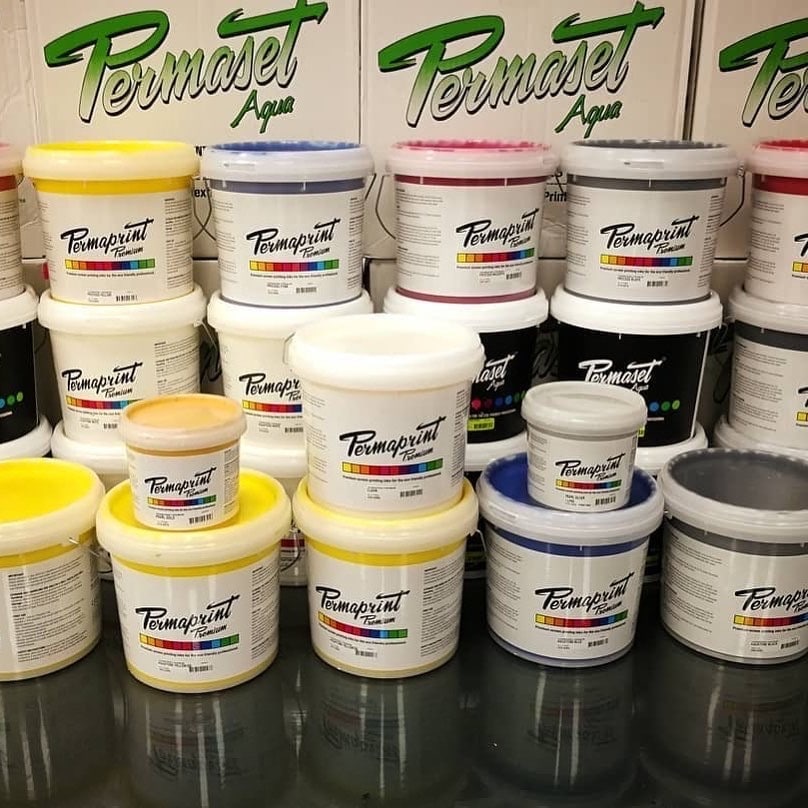
AQUATONE
Colour-matching set of inks for printing on paper, board, plastic, glass, wood, metal & other substrates
Why choose PERMASET
Frequently asked questions
PERMASET FIRST DOWN WHITE Ink has been specifically formulated for use as an underbase (flash white). It is used by trade printers who wish to print on dark fabrics but use regular PERMASET Standard colours or PERMATONE Inks to retain their superior softness and vibrancy. The First Down White should only be used by shops with multi-station print facilities where tight registration can be maintained.
PERMASET SUPERCOVER WHITE is the premium opaque white ink for printing directly onto dark fabrics. It has the highest levels of titanium dioxide pigment for use on dark coloured fabrics. Excellent opacity in a water-based ink. Despite having been the flagship product in the PERMASET SUPERCOVER range for > 30 years, in more recent times, this style of ink has become popularly known as HSA or High Solids Acrylic.
PERMASET STANDARD WHITE is a soft handle white ink for printing onto light coloured fabrics. It delivers a significantly softer hand than the PERMASET SUPERCOVER White ink, yet still delivers a beautifully crisp white print and looks spectacular when used for white-on-white prints.
This is probably the biggest problem for people who are starting to use or are changing over to water-based inks, particularly from plastisols, which are very forgiving in this regard.
Prevention is better than cure, so if you can, keep humidity in the print area above 40-50% RH.
When people first start, they can use a fine mist of water every 15-20 prints to maintain the moisture of the inks. Many people swear by this method. The most important thing is to flood the screen with a layer of ink (1-2 mm; 1/16-1/10”) and to keep the ink moving. If a screen has been sitting around doing nothing for a while, pull a test print from it onto a scrap t-shirt or piece of fabric.
If the ink does start to dry on the screen a little, don’t panic. Just pull a print on a test piece, so that as much ink is cleared from the mesh as possible, take a damp rag and clean both sides of the screen, then remove excess moisture with another rag. Reflood the screen, take another test print and then you’re good to go again.
Mesh count is often a factor. The higher the mesh count, the quicker the ink will dry. Most garment printers use a 43T (110 tpi) mesh.
Use a good emulsion that is compatible with water-based inks and maintains its integrity and you can get good results even with a coarser mesh. With increased experience, you will eventually master 77-90T (195-225 tpi) meshes for SUPERCOVER and up to 120 T (305 tpi) for PERMASET AQUA and PERMATONE.
PERMASET Inks are 100% water-based and do not contain any organic (hydrocarbon) solvents.
Yes, inks within each range can be mixed.
However, when mixing between ranges, e.g. PERMASET SUPERCOVER® opaque inks with PERMASET AQUA® transparent inks, it is important to exercise caution. First, the opacity of the print will be reduced compared to a print with PERMASET SUPERCOVER® ink alone. This will be particularly noticeable in prints over dark backgrounds. Second, some combinations exhibit slight to significant incompatibility. As above, exercise caution and test first before embarking on a production run.
PERMASET Inks are incredibly versatile and can be used on a variety of surfaces and materials, including:
- Natural fibres such as cotton, linen, and hemp.
- Synthetic fabrics like polyester, nylon, and spandex.
- Blends of natural and synthetic fibres.
- Paper and cardstock.
- Wood and untreated timber.
- Leather and suede.
- Some plastics and vinyl
It is important to note that some materials may require additional pre-treatment, such as pre-washing or applying a bonding agent, to ensure the ink adheres properly. Similarly, the specific type of PERMASET Ink you use may be better suited for certain materials than others
PERMASET Inks can be stored for an extended period if they are stored correctly. The shelf life of PERMASET Inks will vary depending on the specific ink and storage conditions, but generally, they can last up to 12 months or more if stored properly.
To store PERMASET Inks, it is recommended to keep them in a cool, dry place, away from direct sunlight, and at a temperature between 5-25°C. It is also essential to keep the ink containers tightly closed to prevent any air from entering and drying out the ink.
If you plan to store the ink for an extended period, it is a good idea to shake the containers regularly to ensure the ink’s pigments are evenly distributed. This will help prevent settling and clumping of the pigments.
No, it is not recommended to mix water-based inks and plastisol inks. Water-based inks and plastisol inks are designed to work differently, and their chemical compositions are not compatible with each other.
Water-based inks are made from water-soluble pigments, while plastisol inks are made from PVC particles suspended in a plasticiser. When mixed together, the water-based ink can cause the plastisol to curdle or coagulate, ruining the print and potentially damaging the printing equipment.
If you need to use both types of inks in a print job, it is best to use them separately and not try to mix them together. It is also essential to clean your equipment thoroughly between using water-based inks and plastisol inks to prevent any contamination or mixing of the inks.
Water-based inks and oil-based inks are two different types of inks that are used for various purposes.
Water-based inks are made by mixing colourants with water as a solvent. They are primarily used for printing on paper and other porous surfaces. They are more environmentally friendly than oil-based inks because they do not contain volatile organic compounds (VOCs), which can be harmful to the environment and human health. Water-based inks are also easier to clean up with soap and water.
Oil-based inks, on the other hand, are made by mixing colourants with an oil-based solvent, such as linseed oil or mineral spirits. They are primarily used for printing on non-porous surfaces, such as metal, plastic, and glass. Oil-based inks are more durable and long-lasting than water-based inks and are resistant to fading and water damage. However, they require more time to dry, are more difficult to clean up and contain harmful VOCs.
We have your back
Our help centre is regularly updated with instruction videos, how-tos, colour cards, technical data sheets and advice to assist you on your screen printing journey
